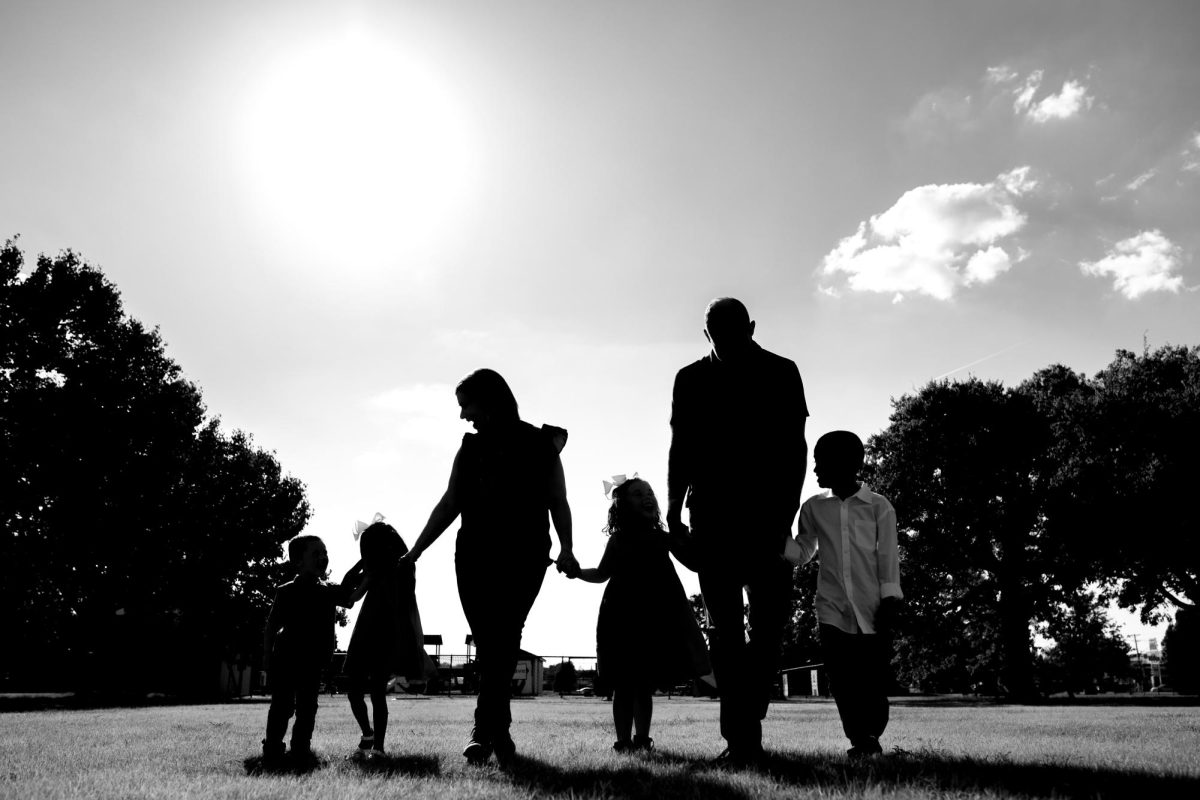In 2013, Kile Bateman witnessed the reality of the foster care system for the first time.
The senior pastor of Evangel Church was on a mission trip to Skid Row, an unofficial “containment zone” for homeless people and shelters in Los Angeles, when he saw a van drop off freshly emancipated 18-year-olds from foster care. Because of their age, the kids had no place to stay with the state, so Child Protective Services dropped them off at the nearest homeless shelter.
This is not an isolated incident but rather a common practice in most major U.S. cities, including his own town Wichita Falls. This eye opening experience led Bateman to found Phased IN, a transitional living program that partners with Evangel Church and the state of Texas.
“If [foster kids] have nowhere to go at 18, they can apply and come live with us,” Phased IN board member Blake Walker said. “It’s a program to help them get on their feet, learn life skills, and then eventually be able to graduate and move on to a career with a safe place to live.”
Organizations like Phased IN are often the only option for foster kids who have aged out of group homes. However, many choose not to join Supervised Independent Living organizations like Phased IN, because of traumatizing experiences with both foster care homes and SIL programs that only meet the basic criteria. A large portion of these groups only provide basic necessities, prioritizing income rather than providing substantial care.
“A lot of these kids that age out are going to end up homeless or they’re going to end up in prison,” Walker said. “They’re not prepared for life on their own.”
Other organizations, like DFW Angels, work to serve kids before they’ve aged out of the system. According to Erin White, the executive director of DFW Angels, 60% of emancipated foster children will fall below the poverty line when they age out of care and become adults.
“We’re trying to change that to set [kids] up for success,” White said. “I think it all relates back to not having that relationship with someone, and we’re trying to change that by allowing them to have deep relationships and connections with people that can help navigate life with them.”
DFW Angels runs a program called Dare to Dream, which focuses on providing kids in the foster system with a mentor to help them build their futures. For example, the mentor could help kids through the college admissions process, which can be intimidating for many foster kids who are behind in their education.
“I absolutely think that, you know, a lot of [foster kids] fall into those statistics that are set for them, because they don’t have anybody that they can count on to help them through life,” White said.
In the state of Texas, current and emancipated foster children can attend state-supported colleges and universities free of charge. However, despite the hard work of organizations like DFW Angels, college is usually not a feasible option for foster kids without a stable family placement.
“Education is a big issue for foster kids,” director of public policy at Dallas CASA, a nonprofit that advocates for neglected children, Chad Frymire said. “A lot of these kids bounce around from home to home. Imagine going to school for three or four months, and then next thing you know, you move to another school district or another city, and you’re lost.”
According to the Hechinger Report, which covers inequality in education, a foster kid loses an estimated four to six months of academic progress with each move. By the time youth in foster care reach junior year, more than a third of them will have switched schools at least five times, falling further behind with each transition.
“It’s very rare to have a kid that is ready to take on a college level curriculum,” Walker said. “They aren’t ready to manage their time, take notes or study, so a lot of them don’t make it to college and if they do, they fail out.”
For many foster kids, school is not a priority amid mental health issues and absent or abusive parents. Children without placement, or CWOPs, have many specific needs that cannot be accommodated by many foster homes.
“Drug abuse and mental health issues with the parents is something that contributes to a lot to kids being removed from their homes,” Frymire said. “A lot of the kids suffer from mental health issues themselves.”
Children without placement are unable to be taken in by foster parents due to their unique circumstances and have been removed from the care of their biological parents, forcing many of these children to sleep in hotel rooms, churches and CPS offices.
With Texas’ CPS overwhelmed by the number of children in their system, Walker believes that the responsibility rests on the people of Texas to help children who have been neglected by the system.
“It starts with me, and it starts with you,” Walker said. “It starts with one person saying ‘I will dedicate whatever I have, the time I have, and the resources I have to get the word out and to help someone.’”




